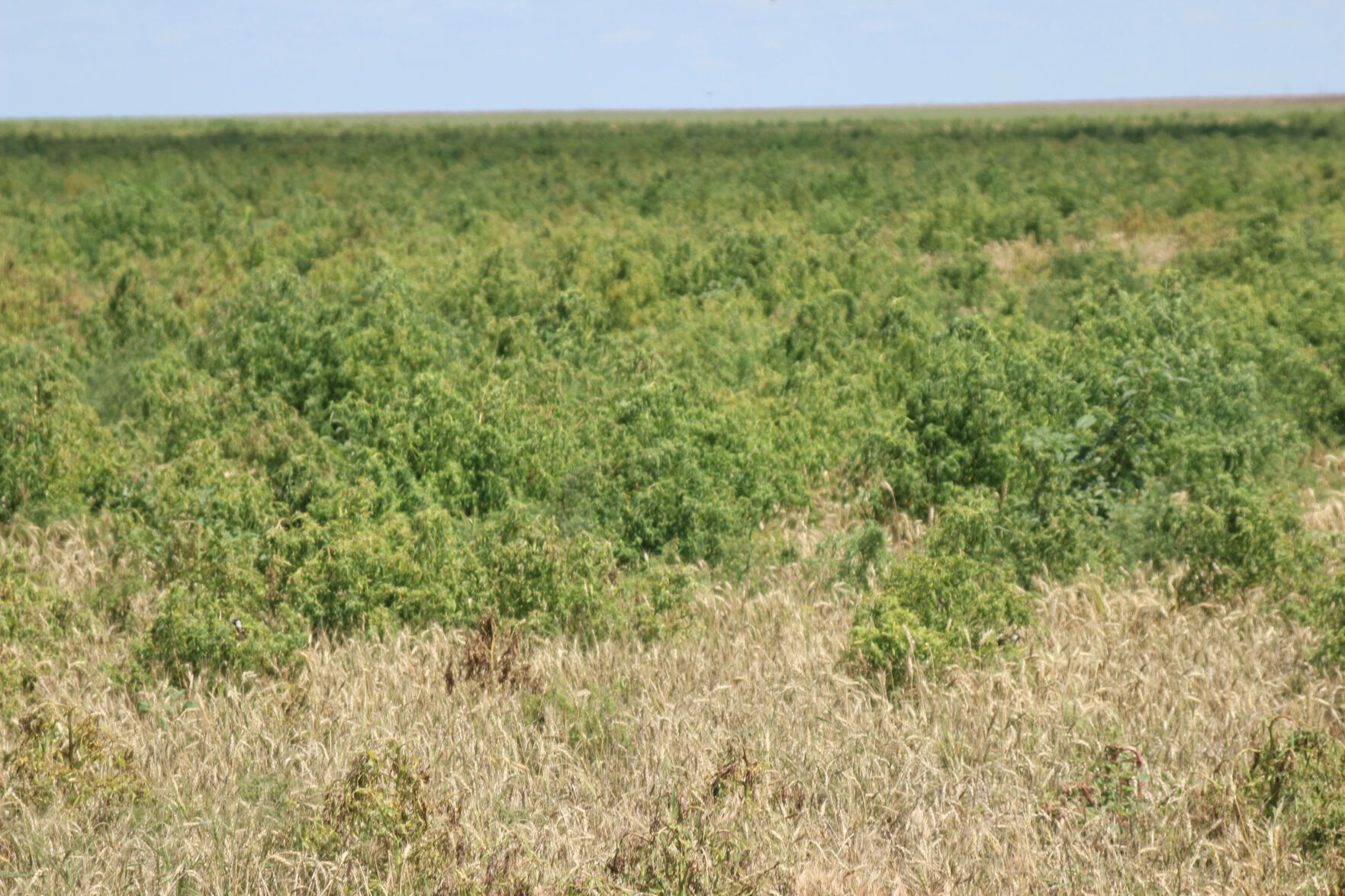As Bayer mounts a full-court press to try to put glyphosate-related lawsuits behind it, a jury in Georgia has ordered the company to pay nearly $2.1 billion in damages, of which only $65 million are compensatory and the remainder punitive.
Announced March 21, it’s one of the largest awards announced in a Roundup case to date. The award was to a plaintiff who claims Roundup caused his cancer, according to attorneys from the law firm, Arnold & Itkin LLP and Kline & Specter PC, which represented the plaintiff.
On its website, Bayer wrote, “We disagree with the jury’s verdict, as it conflicts with the overwhelming weight of scientific evidence and the consensus of regulatory bodies and their scientific assessments worldwide. We believe that we have strong arguments on appeal to get this verdict overturned and the excessive and unconstitutional damage awards eliminated or reduced. The court previously granted the majority of the company’s motion for a directed verdict finding that the plaintiff had failed to prove most of their causes of action in this case.”
Despite its aggressive legal defense combined with negotiating group settlements in some cases, Bayer still faces about 67,000 pending Roundup-related lawsuits. The company has already paid around $10 billion to settle claims and has set aside $5.9 billion for further legal provision. It has lobbied every branch of government, state and federal, seeking both legislative and regulatory solutions to end the tsunami of lawsuits that have dragged down corporate earnings.
On its website, Bayer describes its efforts to put the lawsuits behind it. “The main legal question at issue in many of the company’s appeals is whether state-based failure-to-warn claims are preempted by federal labeling laws regulating crop protection products. The EPA has consistently concluded that glyphosate does not cause cancer and approved the Roundup label without a warning and we believe this should prevent such state-based claims from moving forward in court,” Bayer posted.
Last August, the Third Circuit Court of Appeals agreed, handing Bayer a win in appeal in the Schaffner v. Monsanto case, unanimously finding that the state-based failure-to-warn claims in this case are expressly preempted by the Federal Insecticide, Fungicide Act statute under the Environmental Protection Agency. This ruling gives Bayer ammunition it didn’t have when it petitioned the Supreme Court on this same issue in 2022, a petition that failed.
Coalition support
Bayer has put together a coalition of more than 360 grower and industry groups at the federal level and 85+ supporters of the Modern Ag Alliance, a state-level group, to advocate for uniform labeling laws.
“Bayer will continue to engage with policymakers to achieve legislative certainty around the force of labeling regulations in the U.S.,” the company states. “Federal and state governments should pass legislation which stands by federal labeling laws and honors the rigorous scientific analysis of the safety of agricultural products conducted by the EPA.”
Bayer has pulled glyphosate from products in its garden and residential division, from whose customers 90% of lawsuits have issued. On its website, it reassures farmers that “this action does not impact any of our glyphosate-based agriculture or professional products, or Roundup products available worldwide.”
Yet in recent months, the company has warned lawmakers it may pull glyphosate from ag markets altogether, sparking a billboard campaign by farm organizations to keep it.
Skeptics note profitability
How serious is this threat? Some state representatives like Rep. Colin Wellenkamp of St. Charles, Missouri, seem skeptical. In a Feb. 18 speech on the floor of the Missouri legislature, Wellenkamp pointed out that Bayer’s North American Crop Sciences division is still the company’s most profitable and that it earned $2 billion from glyphosate products in 2024 alone.
Wellenkamp was speaking against a bill, sponsored by fellow Republican state Rep. Dane Diehl of Butler, that would make the FIFRA label required by federal pesticide regulators “sufficient to satisfy any requirement for a warning label regarding cancer under any other provision of current law.” Wellenkamp argued that it has been free-market competition from generic competitors, not just the lawsuits, that has lowered the price of Bayer’s glyphosate products and led it to develop safer alternatives.
He said sales in Bayer’s Crops Sciences division were up by 15%. Wellenkamp voiced objections to diminishing equal protections for farmers and families over foreign corporations.
The bill passed the House on a narrow vote and has been sent to the Senate. But the 85-72 vote showed increasing divisions on the issue among House Republicans, with 24 Republicans opposed. Only one Democrat voted for the bill. Last year, an identical bill passed in a 91-57 vote, but failed in the state Senate.
Missouri isn’t the only state moving on such bills. A similar bill in Georgia—the state where a jury just awarded $2 billion to a Roundup plaintiff—has been passed out of its House and Senate and awaits the signature of Gov. Brian Kemp, a Republican.
Jessica Christiansen, head of sustainability in Bayer’s Crop Sciences department, said recently that bills like this are common sense and do not amount to an “immunity” or shield against all lawsuits, although she admits that Bayer can’t sustain the current level of lawsuits forever.
Christiansen reiterates Bayer’s steadfast claim that no leading global authority has ever linked glyphosate to cancer. She says farmers need tools like glyphosate in their toolbox, and that bills like these “are for the ag industry as a whole, not just Bayer.”
David Murray can be reached at [email protected].




